Tag Archives: electric
Whole House Water Filter System GAC Carbon 1.5CuFt Manual Valve Not Electric NSF
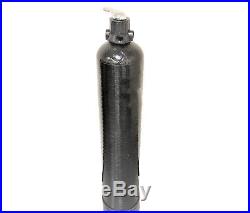
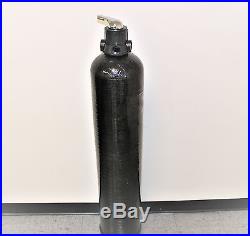
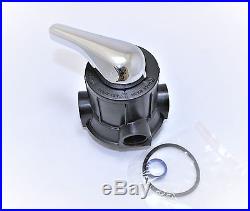
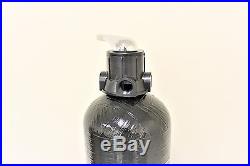
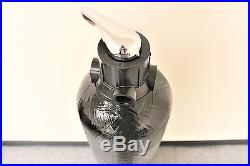
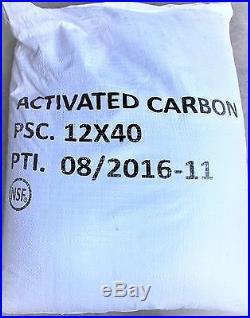
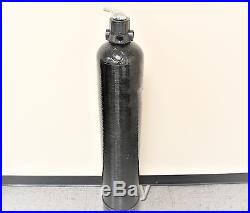

Whole House Water Filter System GAC Carbon 1.5CuFt Manual Valve Not Electric NSF. Whole house water filter system gac (coconut shell granular activated) carbon. Coconut Shell Granular Activated Carbon. High capacity filtration media carbon removes chlorine and bad taste and odor from water. Install this whole house as a pre-treatment in your house for a healthier, purer and richer taste in your house water. Manual Valve (Service, Backwash and Rinse). Distributor with lower and upper basket. BRAND NEW manual valve for filter. 1 FNPT thread size on IN/OUT/DRAIN. To be used on tanks with head size 2.5. Cycles: Service, Backwash, Rinse. Simply structure and reliable sealing. It adopts hermetic head faces with high degree pottery and corrosion resistance for opening and closing. It combines with Service, Backwash and Fast Rinse. Single tank control valve, no water passes the valve in washing. Separately and the client needs to fill up the tank. Easy fill up instructions included. Please let us know if you have any questions. Add to Favorite Stores. Refill For your unit – GAC NSF Certified. Granular Activated Carbon 1 Cu Ft. We warrantee and represent that the goods are as described in the above listing. We specifically disclaim any implied warranties of title, merchantability, fitness for a particular purpose and non-infringement. Customers should satisfy themselves that any item choice made is suitable for their intended purpose or use. We pride ourselves on our customer service. You may also be interested in…. View more great items. Template by Froo Apps. The item “Whole House Water Filter System GAC Carbon 1.5CuFt Manual Valve Not Electric NSF” is in sale since Tuesday, January 10, 2017. This item is in the category “Home & Garden\Kitchen, Dining & Bar\Small Kitchen Appliances\Water Filters”. The seller is “allforwater” and is located in Miami, Florida. This item can be shipped to United States, Canada, United Kingdom, Denmark, Romania, Slovakia, Bulgaria, Czech republic, Finland, Hungary, Latvia, Lithuania, Malta, Estonia, Australia, Greece, Portugal, Cyprus, Slovenia, Japan, China, Sweden, South Korea, Indonesia, Taiwan, South africa, Thailand, Belgium, France, Hong Kong, Ireland, Netherlands, Poland, Spain, Italy, Germany, Austria, Israel, Mexico, New Zealand, Philippines, Singapore, Switzerland, Norway, Saudi arabia, Ukraine, United arab emirates, Qatar, Kuwait, Bahrain, Croatia, Malaysia, Brazil, Chile, Colombia, Costa rica, Panama, Trinidad and tobago, Guatemala, Honduras, Jamaica.
- Brand: All For Water
- Type: Whole House Water Filter System
- Filtration Method: Carbon/Charcoal
- Color: Black
- Power: Does Not Requiere
- Model: FIL GAC 1M
- MPN: FIL GAC 1M
- Tank Size: 10″ x 54″
- Carbon Size: 1.5 Cu Ft

Whole House Water Filter System GAC Carbon 2 Cu Ft Manual Valve Not Electric NSF
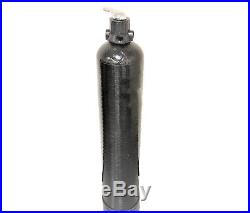
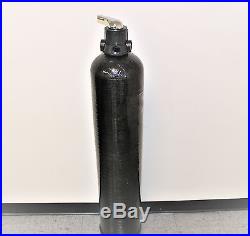
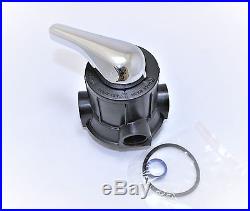
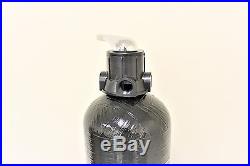
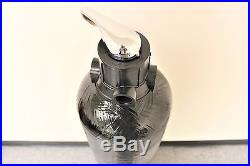
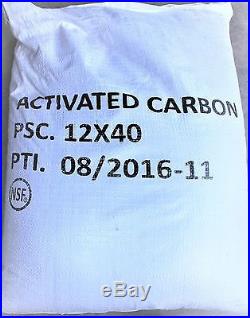
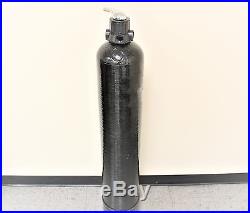

Whole House Water Filter System GAC Carbon 2 Cu Ft Manual Valve Not Electric NSF. Whole house water filter system gac (coconut shell granular activated) carbon. Coconut Shell Granular Activated Carbon. High capacity filtration media carbon removes chlorine and bad taste and odor from water. Install this whole house as a pre-treatment in your house for a healthier, purer and richer taste in your house water. Manual Valve (Service, Backwash and Rinse). Distributor with lower and upper basket. BRAND NEW manual valve for filter. 1 FNPT thread size on IN/OUT/DRAIN. To be used on tanks with head size 2.5. Cycles: Service, Backwash, Rinse. Simply structure and reliable sealing. It adopts hermetic head faces with high degree pottery and corrosion resistance for opening and closing. It combines with Service, Backwash and Fast Rinse. Single tank control valve, no water passes the valve in washing. Separately and the client needs to fill up the tank. Easy fill up instructions included. Please let us know if you have any questions. Add to Favorite Stores. Refill For your unit – GAC NSF Certified. Granular Activated Carbon 1 Cu Ft. We warrantee and represent that the goods are as described in the above listing. We specifically disclaim any implied warranties of title, merchantability, fitness for a particular purpose and non-infringement. Customers should satisfy themselves that any item choice made is suitable for their intended purpose or use. We pride ourselves on our customer service. You may also be interested in…. View more great items. Template by Froo Apps. The item “Whole House Water Filter System GAC Carbon 2 Cu Ft Manual Valve Not Electric NSF” is in sale since Wednesday, January 11, 2017. This item is in the category “Home & Garden\Kitchen, Dining & Bar\Small Kitchen Appliances\Water Filters”. The seller is “allforwater” and is located in Miami, Florida. This item can be shipped to United States, Canada, United Kingdom, Denmark, Romania, Slovakia, Bulgaria, Czech republic, Finland, Hungary, Latvia, Lithuania, Malta, Estonia, Australia, Greece, Portugal, Cyprus, Slovenia, Japan, China, Sweden, South Korea, Indonesia, Taiwan, South africa, Thailand, Belgium, France, Hong Kong, Ireland, Netherlands, Poland, Spain, Italy, Germany, Austria, Israel, Mexico, New Zealand, Philippines, Singapore, Switzerland, Norway, Saudi arabia, Ukraine, United arab emirates, Qatar, Kuwait, Bahrain, Croatia, Malaysia, Brazil, Chile, Colombia, Costa rica, Panama, Trinidad and tobago, Guatemala, Honduras, Jamaica.
- Brand: All For Water
- Type: Whole House Water Filter System
- Filtration Method: Carbon/Charcoal
- Color: Black
- Power: Does Not Requiere
- Model: FIL GAC 2M
- MPN: FIL GAC 1M
- Tank Size: 12″ x 48″
- Carbon Size: 2 Cu Ft

Whole House Water Filter System GAC Carbon 2 CuFt Automatic Valve Electric NSF
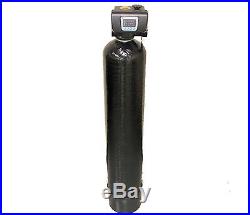
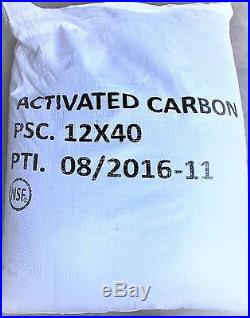
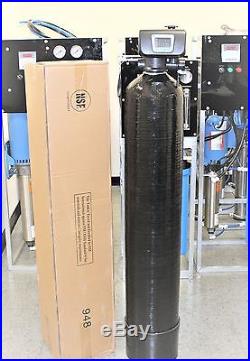
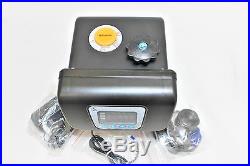
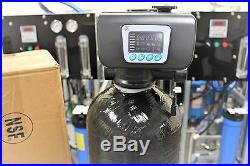
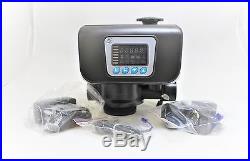

Whole House Water Filter System GAC Carbon 2 CuFt Automatic Valve Electric NSF. Whole house water filter system gac (coconut shell granular activated) carbon. Coconut Shell Granular Activated Carbon. High capacity filtration media carbon removes chlorine and bad taste and odor from water. Install this whole house as a pre-treatment in your house for a healthier, purer and richer taste in your house water. Distributor with lower and upper basket. Simple Structure and reliable sealing. It adopts hermetic head faces with high degree pottery and corrosion resistence for opening and closing. Service, Backwash, and Fast Rinse. No water pass the valve in rinsing in single tank type. Realize sensing immediately by pressing a button at any time. If outage overrides 3 days, the time of day indicator will flash o remind you to reset to new time of the day. The other set parameters do not need to rest. The process will continue to work after power on. Led dynamic screen display. The stripe on dynamic screen flash, it indicates the control valve is in service; otherwise, it is in rinsing cycle. No operations to buttons on the controller within 1 minute, button lock indicator light on which represent buttons are locked. It could set up multiple risings, which means several times of backwash and fast rinse but one time of service. It is much better for cleaning the filter materials. All parameters can be modified. AC100- 240V/50 – 60HZ. Separately and the client needs to fill up the tank. Easy fill up instructions included. Please let us know if you have any questions. Add to Favorite Stores. Refill For your unit – GAC NSF Certified. Granular Activated Carbon 1 Cu Ft. We warrantee and represent that the goods are as described in the above listing. We specifically disclaim any implied warranties of title, merchantability, fitness for a particular purpose and non-infringement. Customers should satisfy themselves that any item choice made is suitable for their intended purpose or use. We pride ourselves on our customer service. You may also be interested in…. View more great items. Template by Froo Apps. The item “Whole House Water Filter System GAC Carbon 2 CuFt Automatic Valve Electric NSF” is in sale since Wednesday, January 11, 2017. This item is in the category “Home & Garden\Kitchen, Dining & Bar\Small Kitchen Appliances\Water Filters”. The seller is “allforwater” and is located in Miami, Florida. This item can be shipped to United States, Canada, United Kingdom, Denmark, Romania, Slovakia, Bulgaria, Czech republic, Finland, Hungary, Latvia, Lithuania, Malta, Estonia, Australia, Greece, Portugal, Cyprus, Slovenia, Japan, China, Sweden, South Korea, Indonesia, Taiwan, South africa, Thailand, Belgium, France, Hong Kong, Ireland, Netherlands, Poland, Spain, Italy, Germany, Austria, Israel, Mexico, New Zealand, Singapore, Switzerland, Norway, Saudi arabia, Ukraine, United arab emirates, Qatar, Kuwait, Bahrain, Croatia, Malaysia, Brazil, Chile, Colombia, Costa rica, Panama, Trinidad and tobago, Guatemala, Honduras, Jamaica.
- Brand: All For Water
- Type: Whole House Water Filter System
- Filtration Method: Carbon/Charcoal
- Color: Black
- Power: AC100- 240V/50 60HZ
- Model: FIL GAC 2A
- MPN: FIL GAC 2A
- Tank Size: 12″ x 48″
- Carbon Size: 2 Cu Ft

Whole House System Salt Saver 30,000 Grain Water Softener Electric Home Unit New
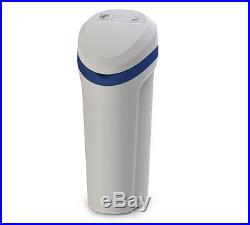
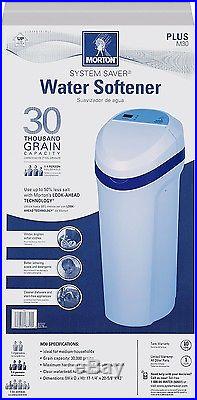
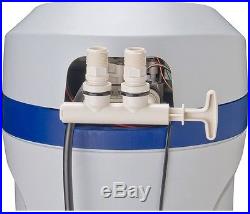
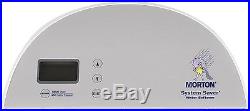
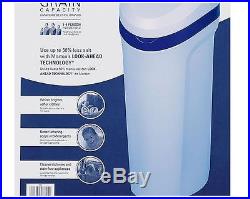
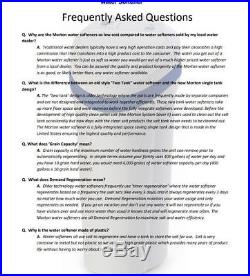
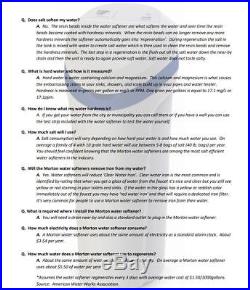
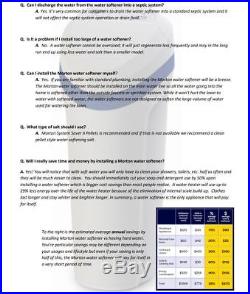

Eliminate those embarrassing hard water and iron stains around your faucets and in your shower with a Morton System Saver Water Softener. Youll enjoy better lathering soap, whiter & brighter laundry and clean spot free dishes. Morton water softeners are designed for homes on city water or homes with a private well and will even reduce up to 8 ppm ferrous iron. 30,000 grain capacity to handle large households and families with high water hardness. Whole home system for up to 1 plumbing. Fully automatic electronic look ahead technology monitors and predicts your water usage only regenerating when needed, using 50% less salt that other older technology water softeners. Compact single tank design:17″ wide x 21″ deep x 43 tall. High water flow rates over 11 gallons per minute. Up to 95 grains per gallon water hardness. Reduces up to 8 parts per million ferrous iron. Standard 1 male pipe thread connections for easy installation. Includes by-bass valve that can be installed either up or down to accommodate all plumbing configurations. Reversible by-pass valve with standard 1 male pipe threads to connect to 3/8 flexible drain tubing. Water hardness test strip. The item “Whole House System Salt Saver 30,000 Grain Water Softener Electric Home Unit New” is in sale since Thursday, March 23, 2017. This item is in the category “Home & Garden\Home Improvement\Plumbing & Fixtures\Water Filters”. The seller is “avo*net” and is located in Tracy, California. This item can be shipped to United States.
- Brand: Morton
- MPN: M30
- Model: M30
- UPC: 024600087155
- EAN: 0024600087155

Kinetico Mod 60 Whole House Water Softener No Electric On Demand Softening
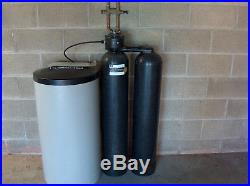
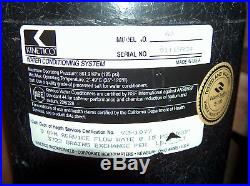

These softeners require no electricity. Powered by water flow (kinetic energy) there are no electrical components. This softener has the old resin removed so you will need to refill the dual resin tanks. Resin can be bought at most home supply stores. I would recommend having your water tested and have this unit installed by a Kinetico installer for optimum efficiency. Comes with several feet of copper water line and bypass valve, owners manual & hardware included. Please note: This unit has some white paint spatter on it. (can be removed with “Goof Off” or paint thinner). The item “Kinetico Mod 60 Whole House Water Softener No Electric On Demand Softening” is in sale since Saturday, February 17, 2018. This item is in the category “Home & Garden\Home Improvement\Plumbing & Fixtures\Water Filters”. The seller is “ewatson2005″ and is located in Sunbury, Ohio. This item can’t be shipped, the buyer must pick up the item.
- Brand: Kinetico
- Model: KINETICO MOD. 60
- Type: Water Softeners
- Country/Region of Manufacture: United States
- Bundle Listing: No

Whole House Water Filter System GAC Carbon 1.5 CuFt Automatic Valve Electric NSF
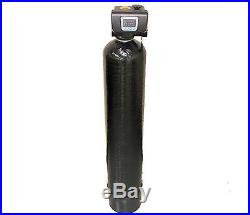
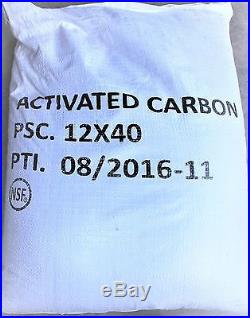
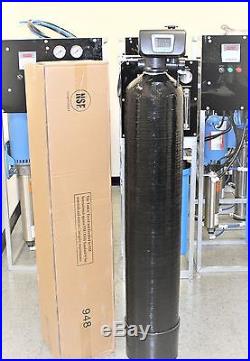
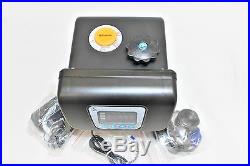
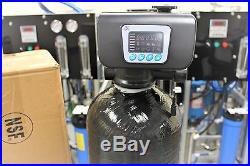
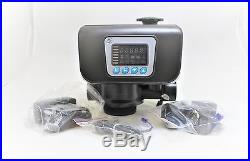

Whole House Water Filter System GAC Carbon 1.5 CuFt Automatic Valve Electric NSF. Whole house water filter system gac (coconut shell granular activated) carbon. Coconut Shell Granular Activated Carbon. High capacity filtration media carbon removes chlorine and bad taste and odor from water. Install this whole house as a pre-treatment in your house for a healthier, purer and richer taste in your house water. Distributor with lower and upper basket. Simple Structure and reliable sealing. It adopts hermetic head faces with high degree pottery and corrosion resistence for opening and closing. Service, Backwash, and Fast Rinse. No water pass the valve in rinsing in single tank type. Realize sensing immediately by pressing a button at any time. If outage overrides 3 days, the time of day indicator will flash o remind you to reset to new time of the day. The other set parameters do not need to rest. The process will continue to work after power on. Led dynamic screen display. The stripe on dynamic screen flash, it indicates the control valve is in service; otherwise, it is in rinsing cycle. No operations to buttons on the controller within 1 minute, button lock indicator light on which represent buttons are locked. It could set up multiple risings, which means several times of backwash and fast rinse but one time of service. It is much better for cleaning the filter materials. All parameters can be modified. Separately and the client needs to fill up the tank. Easy fill up instructions included. Please let us know if you have any questions. Add to Favorite Stores. Refill For your unit – GAC NSF Certified. Granular Activated Carbon 1 Cu Ft. We warrantee and represent that the goods are as described in the above listing. We specifically disclaim any implied warranties of title, merchantability, fitness for a particular purpose and non-infringement. Customers should satisfy themselves that any item choice made is suitable for their intended purpose or use. We pride ourselves on our customer service. You may also be interested in…. View more great items. Template by Froo Apps. The item “Whole House Water Filter System GAC Carbon 1.5 CuFt Automatic Valve Electric NSF” is in sale since Wednesday, January 11, 2017. This item is in the category “Home & Garden\Kitchen, Dining & Bar\Small Kitchen Appliances\Water Filters”. The seller is “allforwater” and is located in Miami, Florida. This item can be shipped to United States, Canada, United Kingdom, Denmark, Romania, Slovakia, Bulgaria, Czech republic, Finland, Hungary, Latvia, Lithuania, Malta, Estonia, Australia, Greece, Portugal, Cyprus, Slovenia, Japan, China, Sweden, South Korea, Indonesia, Taiwan, South africa, Thailand, Belgium, France, Hong Kong, Ireland, Netherlands, Poland, Spain, Italy, Germany, Austria, Russian federation, Israel, Mexico, New Zealand, Philippines, Singapore, Switzerland, Norway, Saudi arabia, Ukraine, United arab emirates, Qatar, Kuwait, Bahrain, Croatia, Malaysia, Brazil, Chile, Colombia, Costa rica, Panama, Trinidad and tobago, Guatemala, Honduras, Jamaica.
- Brand: All For Water
- Type: Whole House Water Filter System
- Filtration Method: Carbon/Charcoal
- Color: Black
- Power: AC100- 240V/50 60HZ
- Model: FIL GAC 15A
- MPN: FIL GAC 15A
- Tank Size: 10″ x 54″
- Carbon Size: 1.5 Cu Ft

Whole House Water Filter System GAC Carbon 1.5CFT Manual Backwash(Non Electric)
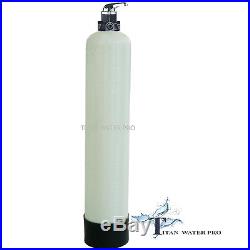
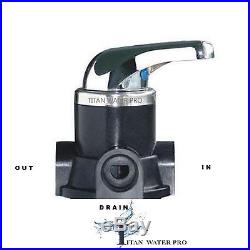

Whole House Water Filter System 1.5 CU FT GAC Carbon with Manual Backwash Valve. Description: Titan Water Pro is your “Clean Water Solutions”. WHOLE HOUSE WATER FILTER. Whole-House Filters or Point of Entry. A whole-house filter is installed at a point on the homes water supply plumbing that will result in treatment of all water that travels to any faucet or fixture in the home. A whole-house filter system treats all water traveling to any faucet or fixture in the home. It removes the chemical before it can be ingested, breathed in, or absorbed by the skin during washing or bathing. Backwash on demand (manual). 1.5 CU FT OF GRANULAR ACTIVATED CARBON. Carbon is a substance that has a long history of being used to absorb impurities and is perhaps the most powerful absorbent known to man. One pound of carbon contains a surface area of roughly 125 acres and can absorb literally thousands of different chemicals. Activated carbon which has a slight electro-positive charge added to it, making it even more attractive to chemicals and impurities. As the water passes over the positively charged carbon surface, the negative ions of the of the contaminants are drawn to the surface of the carbon granules. Activated carbon filters used for home water treatment typically contain either granular activated carbon or powdered block carbon. Although both are effective, carbon block filters generally have a higher contaminant removal ratio. The two most important factors affecting the efficiency of activated carbon filtration are the amount of carbon in the unit and the amount of time the contaminant spends in contact with it. The more carbon the better. Similarly, the lower the flow rate of the water, the more time contaminants will be in contact with the carbon, and the more absorption that will take place. Particle size also affects removal rates. The most common carbon types used in water filtration are bituminous, wood, and coconut shell carbons. While coconut shell carbon typically costs 20% more than the others, it is generally regarded as the most effective of the three. All of our activated carbon filters use coconut shell carbon. There are two principal mechanisms by which activated carbon removes contaminants from water; absorption, and catalytic reduction, a process involving the attraction of negatively-charged contaminants ions to the positively-charged activated carbon. Organic compounds are removed by absorption and residual disinfectants such as chlorine and chloramines are removed by catalytic reduction. Activated carbon filtration is very common in a number of home water treatment systems. It can be used as a stand alone filter to reduce or eliminate bad tastes and odors, chlorine, and many organic contaminants in municipal (pre-treated or chlorinated) water supplies to produce a significantly improved drinking water. It is also very commonly used as a pre-treatment as part of a reverse osmosis system to reduce many organic contaminants, chlorine, and other items that could foul the reverse osmosis membrane. 0.5 block filters are commonly used to remove cysts such as giardia and cryptosporidium. Activated carbon filters remove/reduce many volatile organic chemicals (VOC), pesticides and herbicides, as well as chlorine, benzene, trihalomethane (THM) compounds, radon, solvents and hundreds of other man-made chemicals found in tap water. Whole House Water Filtration. This unit includes the following. 10 x 54 Mineral Tank (Black or Blue). Good Economical Whole House GAC Carbon Water Filter System. It has very few moving parts and easy to use. When you need to backwash a filter, you put in into the backwash cycle for 10 minutes, followed by a rinse of 3 minutes, and then back into the service mode. That is all there is to it. Once a week schedule for back washing is generally sufficient. For a more economical product and ease of use, we recommend you get this rather then opting for unit that does not backwash. Benefits and Importance of a Backwash Cycle. As filter operates in service mode, it collects particles in the filter bed. Also, since water’s nature is to follow the path of least resistance, after a time it begins to cut channels through the medium. As channels or holes in the media bed forms, water begins to flow around rather through the medium. This process is called “channeling” and it reduces the effectiveness of the filter considerably. The backwash is accomplished by sending the water down the riser tube from which it enters the filter tank at the bottom. The force of the water is such that it actually lifts the media bed, swirling and tossing the granular medium. The water leaves the filter tank through the control valve, which routes it through the filter’s drain line. Particles that were in the bed are washed to drain. The backwash is an intense rinsing and tossing of the medium that lasts for several minutes. In a standard residential filter, a typical backwash lasts about ten minutes. After the backwash, initiate a “rinse” of the bed during which water flows downward through the medium, up through the distribution tube and out the drain. The purpose of this rinse is to rinse and settle the bed and prepare it for return to service flow. A regular backwash schedule maintains the efficiency of the filter, as well as providing cleaner water. Clean off the protective cap/cover on your distributor/riser tube, and then remove it. Put a little food grade silicone grease on the O-ring in your control valve, the one that holds the distributor/riser tube in place. Insert the control head on to the riser tube and push down so it forms a nice seal. Screw the control valve back on, attach your plumbing, and plug in the control valve (if electrical). Open a faucet downstream from the filter to purge the air that will be in the system from the newly rebuilt filter. Turn on the water S-L-O-W-L-Y to the filter, take your time. The water may be discolored, It’s normal. The purging air will be noisy… Don’t freak out! Once all the air is purged, let it sit for a few hours or overnight. It’s OK to keep using water during this time, you’ll see some discoloration, but it’s just aesthetics. Now it’s time to put it through a back wash cycle to remove media dust, and if it’s softener media or other media that needs to be regenerated, this is the time to do it. Make sure you have a faucet opened downstream in case there is still some trapped air in the system. Put the filter through an entire cycle to clean it all up and to regenerate. With a carbon filter, there will still be some residual carbon fines in the water for a few days after a backwash, again, that’s normal. Make sure the valve is working correctly and there are no leaks. Items do not include installation guide unless specified. Used or installed items are not eligible for return. About Us: Titan Water Pro is your “Clean Water Solutions”. The item “Whole House Water Filter System GAC Carbon 1.5CFT Manual Backwash(Non Electric)” is in sale since Monday, January 20, 2014. This item is in the category “Home & Garden\Kitchen, Dining & Bar\Small Kitchen Appliances\Water Filters”. The seller is “titanwaterpro” and is located in Canyon Country, California. This item can be shipped to United States, Canada, United Kingdom, Denmark, Romania, Slovakia, Bulgaria, Czech republic, Finland, Hungary, Latvia, Lithuania, Malta, Estonia, Australia, Greece, Portugal, Cyprus, Slovenia, Japan, China, Sweden, South Korea, Indonesia, Taiwan, South africa, Thailand, Belgium, France, Hong Kong, Ireland, Netherlands, Poland, Spain, Italy, Germany, Austria, Russian federation, Israel, Mexico, New Zealand, Philippines, Singapore, Switzerland, Norway, Saudi arabia, Ukraine, United arab emirates, Qatar, Kuwait, Bahrain, Croatia, Malaysia, Brazil, Chile, Colombia, Costa rica, Panama, Trinidad and tobago, Guatemala, Honduras, Jamaica.
- Type: Whole House Filter System
- Brand: Titan Water Pro
- Filtration Method: Carbon/Charcoal
- Color: Multi-Color
- Model: TWPWH15MW
- MPN: TWP188WH
- water filter: water filters
- gac carbon filter: carbon filter

Whole House Water Filter System GAC Carbon 1 Cu Ft Manual Valve Not Electric NSF
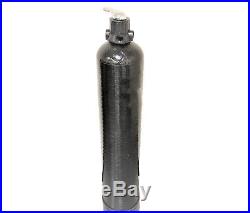
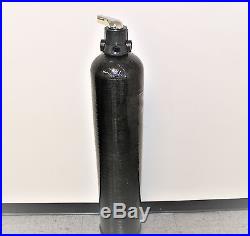
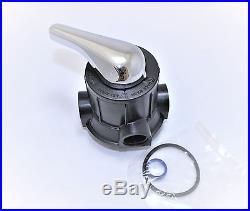
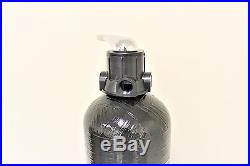
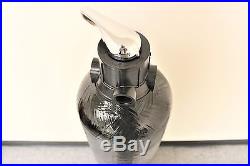
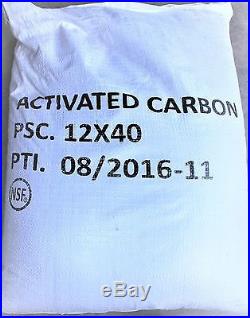
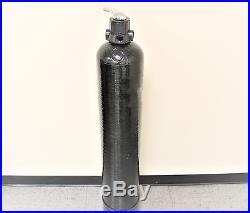

Whole House Water Filter System GAC Carbon 1 Cu Ft Manual Valve Not Electric NSF. Whole house water filter system gac (coconut shell granular activated) carbon. Coconut Shell Granular Activated Carbon. High capacity filtration media carbon removes chlorine and bad taste and odor from water. Install this whole house as a pre-treatment in your house for a healthier, purer and richer taste in your house water. Manual Valve (Service, Backwash and Rinse). Distributor with lower and upper basket. BRAND NEW manual valve for filter. 1 FNPT thread size on IN/OUT/DRAIN. To be used on tanks with head size 2.5. Cycles: Service, Backwash, Rinse. Simply structure and reliable sealing. It adopts hermetic head faces with high degree pottery and corrosion resistance for opening and closing. It combines with Service, Backwash and Fast Rinse. Single tank control valve, no water passes the valve in washing. Separately and the client needs to fill up the tank. Easy fill up instructions included. Please let us know if you have any questions. Add to Favorite Stores. Refill For your unit – GAC NSF Certified. Granular Activated Carbon 1 Cu Ft. We warrantee and represent that the goods are as described in the above listing. We specifically disclaim any implied warranties of title, merchantability, fitness for a particular purpose and non-infringement. Customers should satisfy themselves that any item choice made is suitable for their intended purpose or use. We pride ourselves on our customer service. You may also be interested in…. View more great items. Template by Froo Apps. The item “Whole House Water Filter System GAC Carbon 1 Cu Ft Manual Valve Not Electric NSF” is in sale since Wednesday, January 11, 2017. This item is in the category “Home & Garden\Kitchen, Dining & Bar\Small Kitchen Appliances\Water Filters”. The seller is “allforwater” and is located in Miami, Florida. This item can be shipped to United States, Canada, United Kingdom, Denmark, Romania, Slovakia, Bulgaria, Czech republic, Finland, Hungary, Latvia, Lithuania, Malta, Estonia, Australia, Greece, Portugal, Cyprus, Slovenia, Japan, China, Sweden, South Korea, Indonesia, Taiwan, South africa, Thailand, Belgium, France, Hong Kong, Ireland, Netherlands, Poland, Spain, Italy, Germany, Austria, Russian federation, Israel, Mexico, New Zealand, Philippines, Singapore, Switzerland, Norway, Saudi arabia, Ukraine, United arab emirates, Qatar, Kuwait, Bahrain, Croatia, Malaysia, Brazil, Chile, Colombia, Costa rica, Panama, Trinidad and tobago, Guatemala, Honduras, Jamaica.
- Brand: All For Water
- Type: Whole House Water Filter System
- Filtration Method: Carbon/Charcoal
- Color: Black
- Power: Does Not Requiere
- Model: FIL GAC 1M
- MPN: FIL GAC 1M
- Tank Size: 9″ x 48″
- Carbon Size: 1 Cu Ft

Whole House Water Filter System GAC Carbon 1 CUFT Manual Backwash(Non Electric)
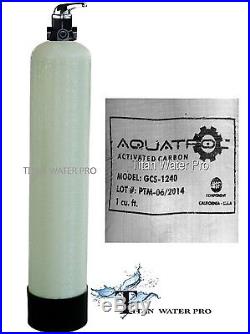
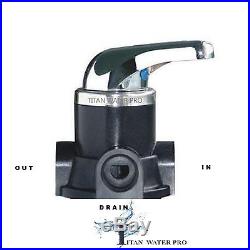

Whole House Water Filter System 1 CU FT GAC Carbon with Manual Backwash Valve. WHOLE HOUSE WATER FILTER. Whole-House Filter or Point of Entry. A whole-house filter is installed at a point on the homes water supply plumbing that will result in treatment of all water that travels to any faucet or fixture in the home. A whole-house filter system treats all water traveling to any faucet or fixture in the home. It removes the chemical before it can be ingested, breathed in, or absorbed by the skin during washing or bathing. Backwash on demand (manual). 1 CU FT OF GRANULAR ACTIVATED CARBON. Carbon is a substance that has a long history of being used to absorb impurities and is perhaps the most powerful absorbent known to man. One pound of carbon contains a surface area of roughly 125 acres and can absorb literally thousands of different chemicals. Activated carbon which has a slight electro-positive charge added to it, making it even more attractive to chemicals and impurities. As the water passes over the positively charged carbon surface, the negative ions of the of the contaminants are drawn to the surface of the carbon granules. Activated carbon filters used for home water treatment typically contain either granular activated carbon or powdered block carbon. Although both are effective, carbon block filters generally have a higher contaminant removal ratio. The two most important factors affecting the efficiency of activated carbon filtration are the amount of carbon in the unit and the amount of time the contaminant spends in contact with it. The more carbon the better. Similarly, the lower the flow rate of the water, the more time contaminants will be in contact with the carbon, and the more absorption that will take place. Particle size also affects removal rates. The most common carbon types used in water filtration are bituminous, wood, and coconut shell carbons. While coconut shell carbon typically costs 20% more than the others, it is generally regarded as the most effective of the three. All of our activated carbon filters use coconut shell carbon. There are two principal mechanisms by which activated carbon removes contaminants from water; absorption, and catalytic reduction, a process involving the attraction of negatively-charged contaminants ions to the positively-charged activated carbon. Organic compounds are removed by absorption and residual disinfectants such as chlorine and chloramines are removed by catalytic reduction. Activated carbon filtration is very common in a number of home water treatment systems. It can be used as a stand alone filter to reduce or eliminate bad tastes and odors, chlorine, and many organic contaminants in municipal (pre-treated or chlorinated) water supplies to produce a significantly improved drinking water. It is also very commonly used as a pre-treatment as part of a reverse osmosis system to reduce many organic contaminants, chlorine, and other items that could foul the reverse osmosis membrane. 0.5 block filters are commonly used to remove cysts such as giardia and cryptosporidium. Activated carbon filters remove/reduce many volatile organic chemicals (VOC), pesticides and herbicides, as well as chlorine, benzene, trihalomethane (THM) compounds, radon, solvents and hundreds of other man-made chemicals found in tap water. Whole House Water Filtration. This unit includes the following. 9″x 48″ FRP Mineral Tank (Color Varies). Manual Backwash Valve 1. GAC Granular Activated Carbon. Good Economical Whole House GAC Carbon Water Filter System. Clean off the protective cap/cover on your distributor/riser tube, and then remove it. Put a little food grade silicone grease on the O-ring in your control valve, the one that holds the distributor/riser tube in place. Insert the control head on to the riser tube and push down so it forms a nice seal. Screw the control valve back on, attach your plumbing, and plug in the control valve (if electrical). Open a faucet downstream from the filter to purge the air that will be in the system from the newly rebuilt filter. Turn on the water S-L-O-W-L-Y to the filter, take your time. The water may be discolored, It’s normal. The purging air will be noisy… Don’t freak out! Once all the air is purged, let it sit for a few hours or overnight. It’s OK to keep using water during this time, you’ll see some discoloration, but it’s just aesthetics. Now it’s time to put it through a back wash cycle to remove media dust, and if it’s softener media or other media that needs to be regenerated, this is the time to do it. Make sure you have a faucet opened downstream in case there is still some trapped air in the system. Put the filter through an entire cycle to clean it all up and to regenerate. With a carbon filter, there will still be some residual carbon fines in the water for a few days after a backwash, again, that’s normal. Make sure the valve is working correctly and there are no leaks. It has very few moving parts and easy to use. When you need to backwash a filter, you put in into the backwash cycle for 10 minutes, followed by a rinse of 3 minutes, and then back into the service mode. That is all there is to it! Once a week schedule for back washing is generally sufficient. For a more economical product and ease of use, we recommend you get this rather then opting for unit that does not backwash. Benefits and Importance of a Backwash Cycle. As filter operates in service mode, it collects particles in the filter bed. Also, since water’s nature is to follow the path of least resistance, after a time it begins to cut channels through the medium. As channels or holes in the media bed forms, water begins to flow around rather through the medium. This process is called “channeling” and it reduces the effectiveness of the filter considerably. The backwash is accomplished by sending the water down the riser tube from which it enters the filter tank at the bottom. The force of the water is such that it actually lifts the media bed, swirling and tossing the granular medium. The water leaves the filter tank through the control valve, which routes it through the filter’s drain line. Particles that were in the bed are washed to drain. The backwash is an intense rinsing and tossing of the medium that lasts for several minutes. In a standard residential filter, a typical backwash lasts about ten minutes. After the backwash, initiate a “rinse” of the bed during which water flows downward through the medium, up through the distribution tube and out the drain. The purpose of this rinse is to rinse and settle the bed and prepare it for return to service flow. A regular backwash schedule maintains the efficiency of the filter, as well as providing cleaner water. Used or Installed items are not eligible for return. Titan Water Pro is your “Clean Water Solutions”. The item “Whole House Water Filter System GAC Carbon 1 CUFT Manual Backwash(Non Electric)” is in sale since Sunday, July 27, 2014. This item is in the category “Home & Garden\Kitchen, Dining & Bar\Small Kitchen Appliances\Water Filters”. The seller is “titanwaterpro” and is located in Canyon Country, California. This item can be shipped to United States, Canada, United Kingdom, Denmark, Romania, Slovakia, Bulgaria, Czech republic, Finland, Hungary, Latvia, Lithuania, Malta, Estonia, Australia, Greece, Portugal, Cyprus, Slovenia, Japan, China, Sweden, South Korea, Indonesia, Taiwan, South africa, Thailand, Belgium, France, Hong Kong, Ireland, Netherlands, Poland, Spain, Italy, Germany, Austria, Russian federation, Israel, Mexico, New Zealand, Philippines, Singapore, Switzerland, Norway, Saudi arabia, Ukraine, United arab emirates, Qatar, Kuwait, Bahrain, Croatia, Malaysia, Brazil, Chile, Colombia, Costa rica, Panama, Trinidad and tobago, Guatemala, Honduras, Jamaica.
- Type: Whole House Filter System
- Brand: Titan Water Pro
- Filtration Method: Carbon/Charcoal
- Color: Multi-Color
- Model: TWPROWHF
- MPN: TWP188WH
- coconut shell gac: activated carbon
- backwash valve: frp tank

Whole House Water Filter System GAC Carbon 1 Cu Ft Automatic Valve Electric NSF
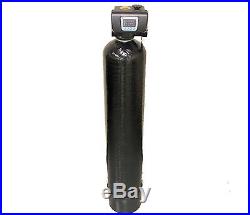
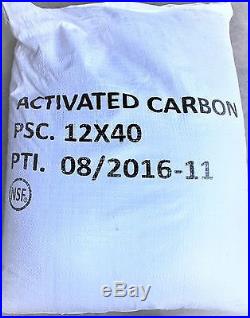
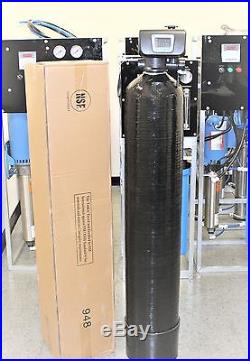
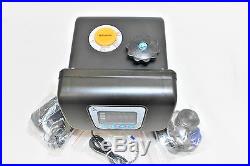
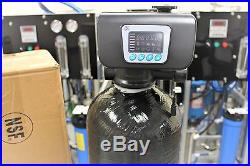
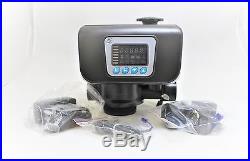

Whole House Water Filter System GAC Carbon 1 Cu Ft Automatic Valve Electric NSF. Whole house water filter system gac (coconut shell granular activated) carbon. Coconut Shell Granular Activated Carbon. High capacity filtration media carbon removes chlorine and bad taste and odor from water. Install this whole house as a pre-treatment in your house for a healthier, purer and richer taste in your house water. Distributor with lower and upper basket. Simple Structure and reliable sealing. It adopts hermetic head faces with high degree pottery and corrosion resistence for opening and closing. Service, Backwash, and Fast Rinse. No water pass the valve in rinsing in single tank type. Realize sensing immediately by pressing a button at any time. If outage overrides 3 days, the time of day indicator will flash o remind you to reset to new time of the day. The other set parameters do not need to rest. The process will continue to work after power on. Led dynamic screen display. The stripe on dynamic screen flash, it indicates the control valve is in service; otherwise, it is in rinsing cycle. No operations to buttons on the controller within 1 minute, button lock indicator light on which represent buttons are locked. It could set up multiple risings, which means several times of backwash and fast rinse but one time of service. It is much better for cleaning the filter materials. All parameters can be modified. Separately and the client needs to fill up the tank. Easy fill up instructions included. Please let us know if you have any questions. Add to Favorite Stores. Refill For your unit – GAC NSF Certified. Granular Activated Carbon 1 Cu Ft. We warrantee and represent that the goods are as described in the above listing. We specifically disclaim any implied warranties of title, merchantability, fitness for a particular purpose and non-infringement. Customers should satisfy themselves that any item choice made is suitable for their intended purpose or use. We pride ourselves on our customer service. You may also be interested in…. View more great items. Template by Froo Apps. The item “Whole House Water Filter System GAC Carbon 1 Cu Ft Automatic Valve Electric NSF” is in sale since Wednesday, January 11, 2017. This item is in the category “Home & Garden\Kitchen, Dining & Bar\Small Kitchen Appliances\Water Filters”. The seller is “allforwater” and is located in Miami, Florida. This item can be shipped to United States, Canada, United Kingdom, Denmark, Romania, Slovakia, Bulgaria, Czech republic, Finland, Hungary, Latvia, Lithuania, Malta, Estonia, Australia, Greece, Portugal, Cyprus, Slovenia, Japan, China, Sweden, South Korea, Indonesia, Taiwan, South africa, Thailand, Belgium, France, Hong Kong, Ireland, Netherlands, Poland, Spain, Italy, Germany, Austria, Russian federation, Israel, Mexico, New Zealand, Philippines, Singapore, Switzerland, Norway, Saudi arabia, Ukraine, United arab emirates, Qatar, Kuwait, Bahrain, Croatia, Malaysia, Brazil, Chile, Colombia, Costa rica, Panama, Trinidad and tobago, Guatemala, Honduras, Jamaica.
- Brand: All For Water
- Type: Whole House Water Filter System
- Filtration Method: Carbon/Charcoal
- Color: Black
- Power: AC100- 240V/50 60HZ
- Model: FIL GAC 1A
- MPN: FIL GAC 1A
- Tank Size: 9″ x 48″
- Carbon Size: 1 Cu Ft
